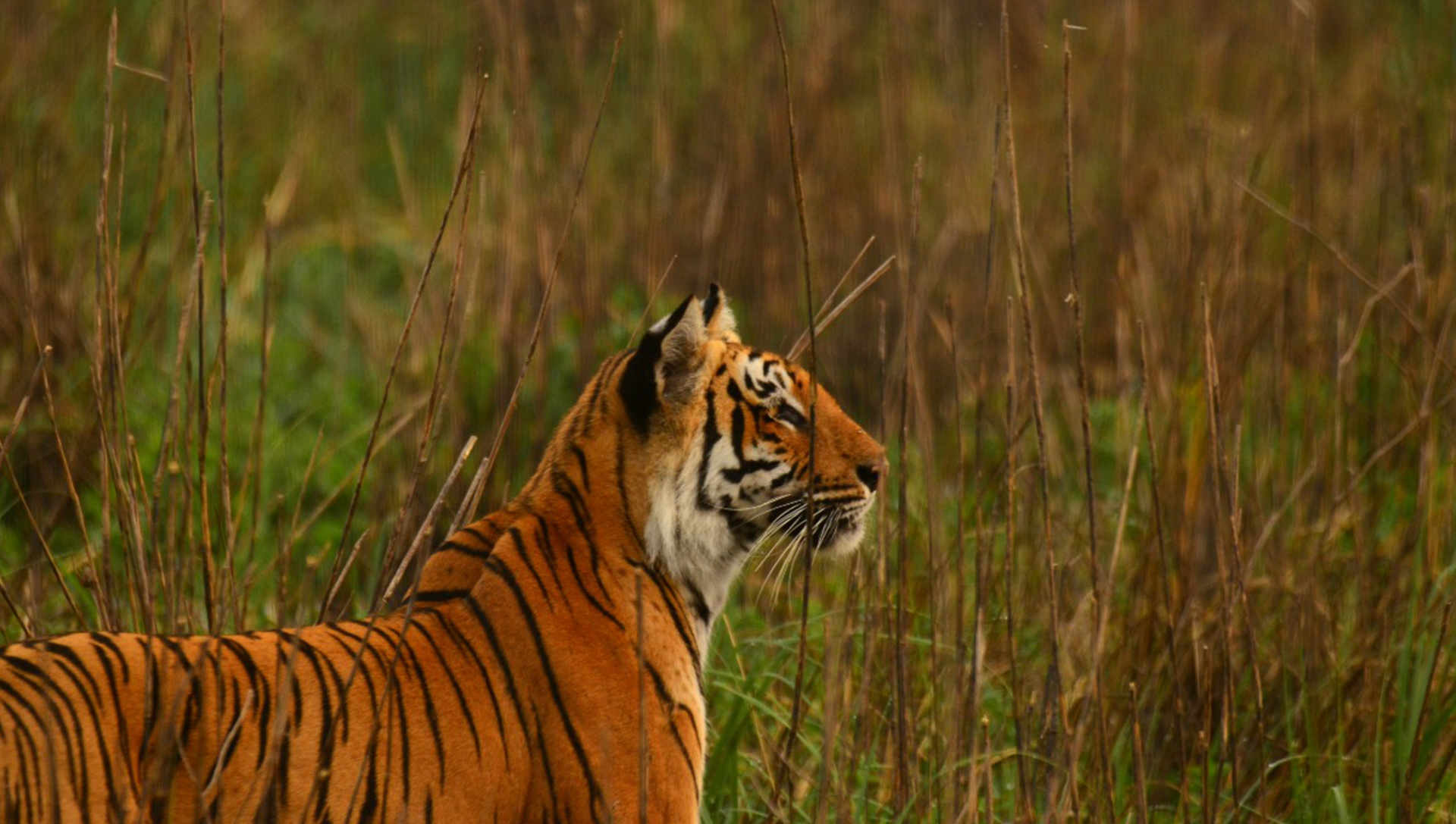DEHRADUN: Possession of tiger hide from four suspected poachers on Thursday in Uttarakhand has wounded India’s conservation programme with the death toll of tigers rising to 89 after a prima facie probe has pointed at the big cats’ origin and their absence from the Rajaji Tiger Reserve (RTR) .
“These tigers were killed in the Rajaji Tiger Reserve which is a serious setback to tiger conversation programme of the state. A detailed investigation is needed to break the nexus trying to destroy our wildlife. This raises serious questions on our department,” said an IFS officer from Uttarakhand.
However, Parag Madhukar Dhakate, Chief Wildlife Warden , Uttarakhand, told The New Indian, that more data is being collected before coming to a conclusion on whether the skin belong to tigers from RTR.
“We were on alert mode for more than one month to nab these poachers. After the recovery we have requested the Wildlife Institute of India, (WII), Dehradun to check their data base and ascertain the location of the killed tigers. Every measure is being taken to check crime against wildlife,” Dhakate said. He refused to disclose more
Sources in the wildlife department in Uttarakhand that if the DNA test or samples may not point to deaths of tigers in Uttarakhand, it is essential to trace the map of tigers’ saunter in Uttarkhand from any neighbouring region.
Poachers have killed almost one-third of tigers and leopards in India in first half of the year 2022, according to a recent report by Wildlife Protection Society of India. The New Indian accessed the report on June 30.
A total 375 tiger and leopards (86 tigers and 289 leopards) have died from January-June 2022 of which 114 (30.40%) have been killed by poachers.
In a dramatic chase, the special task force (STF) poachers tip-toed poachers over a stretching running into 225 km from Bajpur in Haridwar district to Laksar in Haridwar before finally apprehending the group in Laksar.
The four were identified as Bantinath of Haridwar of Uttarakhand, Ramdhari of Jalandhar in Punjab, Shyamlal aka Kaala from Hoshiarpur and Haridwarilaal of Nawanshahr in Punjab.
Of the total 85 tiger deaths from January to June 2022, 20 have been listed under the category of ‘Paoching & Seizure’, 31 died naturally, 24 died in infighting, two died during rescue and treatment while four were killed in road and train accidents. Four died in a fight with other animals, the WPSI report had said.
Out of total 287 leopard deaths across the country, 94 were killed by poachers, 78 were ‘Found Dead’, 62 killes in road/train accidents, 19 died in infighting, 13 see killed by lion, tiger, other animals, five died in electrocution, two have been shot by forest department, seven died in rescue operation/ treatment and seven were killed by villagers.
Highest number of tigers have died in Madhya Pradesh (29) followed by Maharashtra (16), Karnataka (14), Rajasthan (7), Assam (5), three each in Kerela, Uttar Pradesh and Uttarakhand, two each in Andhra Pradesh, Chattisgarh and one each in Bihar and Odisha.
According to the data available on the website of National Tiger Conservation Authority (NTCA), total 127 tigers died in year 2021, 106 in 2020, 96 in 2019, 101 in 2018, 117 in 2017, 121 in 2016, 82 in 2015, 78 in 2014, 68 in 2013 and 88 in 2012.
Notably, in year 2020, on the International Tiger Day, the report titled ‘Status of Tigers Co-predators and Prey in India’, released by union ministry of environment, forest and climate change minister (MoEFCC) revealed that Corbett Tiger Reserve of Uttarakhand has the highest tiger density amongst 50 tiger reserves in India.
Corbett Tiger Reserve (CTR) alone has 14 tigers per 100 square kilometers which is highest in India.
First phase of the tiger census in the Corbett and Rajaji tiger reserves along with adjacent tiger habitats has been completed said the state forest department officials while data is being collected for the second phase.
The census is being carried out by the Uttarakhand forest department on the instructions of National Tiger Conservation Authority (NTCA). Total 1,798 camera traps have been installed along tiger trails on around 2,300 square kilometres of the two tiger reserves dividing the entire area into four parts.
Of the 1,798 camera traps, 1,034 have been set up in the Corbett Tiger Reserve and 764 in the Rajaji Tiger Reserve.
In 2018 tiger census, Uttarakhand was at third spot in the country in terms of tiger population with 442 tigers.

